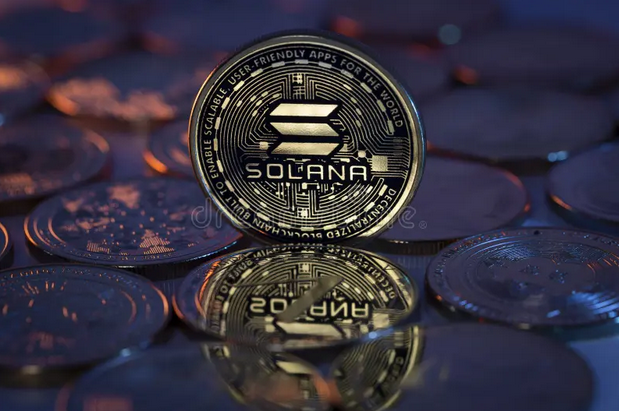| COINOTAG recommends • Exchange signup |
| 💹 Trade with pro tools |
| Fast execution, robust charts, clean risk controls. |
| 👉 Open account → |
| COINOTAG recommends • Exchange signup |
| 🚀 Smooth orders, clear control |
| Advanced order types and market depth in one view. |
| 👉 Create account → |
| COINOTAG recommends • Exchange signup |
| 📈 Clarity in volatile markets |
| Plan entries & exits, manage positions with discipline. |
| 👉 Sign up → |
| COINOTAG recommends • Exchange signup |
| ⚡ Speed, depth, reliability |
| Execute confidently when timing matters. |
| 👉 Open account → |
| COINOTAG recommends • Exchange signup |
| 🧭 A focused workflow for traders |
| Alerts, watchlists, and a repeatable process. |
| 👉 Get started → |
| COINOTAG recommends • Exchange signup |
| ✅ Data‑driven decisions |
| Focus on process—not noise. |
| 👉 Sign up → |
South Korea’s consumer inflation rose to 2.4% in October 2024, driven by a weaker won increasing food and energy costs. This exceeds the Bank of Korea’s 2% target, supporting a steady interest rate amid housing market pressures and economic challenges from external tariffs.
-
Headline inflation climbed 2.4% year-over-year, up from 2.1% in September.
-
Core inflation, excluding volatile items, increased to 2.2% from 2% the prior month.
-
The won depreciated nearly 1.9% against the dollar, boosting import costs for essentials like food (up 5%) and fuel.
South Korea inflation hits 2.4% in October amid weaker won and rising costs. Explore how this influences Bank of Korea policy and economic stability—stay informed on global impacts today!
What is the current inflation rate in South Korea?
South Korea inflation reached 2.4% in October 2024, marking a notable uptick from September’s 2.1% and surpassing economist expectations of 2.2%. This rise, reported by the Ministry of Data and Statistics, stems primarily from a depreciating won that elevated import prices for food and energy. The Bank of Korea now faces heightened pressure to balance growth concerns with its 2% target, as core inflation also climbed to 2.2%.
| COINOTAG recommends • Professional traders group |
| 💎 Join a professional trading community |
| Work with senior traders, research‑backed setups, and risk‑first frameworks. |
| 👉 Join the group → |
| COINOTAG recommends • Professional traders group |
| 📊 Transparent performance, real process |
| Spot strategies with documented months of triple‑digit runs during strong trends; futures plans use defined R:R and sizing. |
| 👉 Get access → |
| COINOTAG recommends • Professional traders group |
| 🧭 Research → Plan → Execute |
| Daily levels, watchlists, and post‑trade reviews to build consistency. |
| 👉 Join now → |
| COINOTAG recommends • Professional traders group |
| 🛡️ Risk comes first |
| Sizing methods, invalidation rules, and R‑multiples baked into every plan. |
| 👉 Start today → |
| COINOTAG recommends • Professional traders group |
| 🧠 Learn the “why” behind each trade |
| Live breakdowns, playbooks, and framework‑first education. |
| 👉 Join the group → |
| COINOTAG recommends • Professional traders group |
| 🚀 Insider • APEX • INNER CIRCLE |
| Choose the depth you need—tools, coaching, and member rooms. |
| 👉 Explore tiers → |
How does the weaker won contribute to South Korea’s inflation pressures?
The South Korean won weakened by almost 1.9% against the U.S. dollar in October, hitting its lowest level since March and ranking among Asia’s weakest currencies since early that month. This depreciation directly amplified costs for imported goods, with food and non-alcoholic beverages surging 5% year-over-year, according to data from the Ministry of Data and Statistics. Energy prices also rose due to reduced government fuel tax subsidies, pushing transportation costs up 3.4%. Housing and utilities increased by 1.2%, while food and lodging prices jumped 3.2%, reflecting broader import dependency in South Korea’s economy. Expert analysis from the Korea Real Estate Board notes that apartment prices in Seoul have risen for 39 consecutive weeks as of late October, adding to inflationary strains in a rapidly heating property sector. These factors collectively underscore the currency’s role in sustaining above-target inflation, as imports constitute a significant portion of consumer spending. Economists, including those from Barclays Bank PLC, highlight that such currency movements exacerbate price pressures without immediate domestic supply adjustments.
Frequently Asked Questions
What factors drove South Korea’s October 2024 inflation higher than forecasts?
South Korea’s inflation climbed to 2.4% in October, exceeding the 2.2% forecast due to seasonal Chuseok spending on goods and services, plus imported car price adjustments and a weaker won. Data from the Ministry of Data and Statistics shows this as the highest rate since July’s 2.6%, with core measures at 2.2% also above the Bank of Korea’s target.
| COINOTAG recommends • Exchange signup |
| 📈 Clear interface, precise orders |
| Sharp entries & exits with actionable alerts. |
| 👉 Create free account → |
| COINOTAG recommends • Exchange signup |
| 🧠 Smarter tools. Better decisions. |
| Depth analytics and risk features in one view. |
| 👉 Sign up → |
| COINOTAG recommends • Exchange signup |
| 🎯 Take control of entries & exits |
| Set alerts, define stops, execute consistently. |
| 👉 Open account → |
| COINOTAG recommends • Exchange signup |
| 🛠️ From idea to execution |
| Turn setups into plans with practical order types. |
| 👉 Join now → |
| COINOTAG recommends • Exchange signup |
| 📋 Trade your plan |
| Watchlists and routing that support focus. |
| 👉 Get started → |
| COINOTAG recommends • Exchange signup |
| 📊 Precision without the noise |
| Data‑first workflows for active traders. |
| 👉 Sign up → |
Will the Bank of Korea change its interest rate policy after this inflation data?
The Bank of Korea has held its key interest rate steady for three consecutive meetings, citing risks from household debt, asset bubbles, and external pressures like U.S. tariffs. While October’s data shows inflation above 2%, officials are focusing on long-term trends rather than short-term spikes, suggesting no immediate cuts despite growth concerns.
Key Takeaways
- Inflation Acceleration: South Korea’s headline rate hit 2.4%, driven by currency weakness and import costs, outpacing September’s figure.
- Policy Stance: The Bank of Korea prioritizes financial stability, maintaining rates amid tariff impacts expected to shave 0.45% off growth this year.
- Sectoral Pressures: Monitor food (up 5%) and housing trends, as ongoing won depreciation could prolong above-target inflation—consider diversified investments for stability.
Conclusion
South Korea’s inflation rate of 2.4% in October 2024, coupled with core inflation at 2.2%, highlights persistent pressures from a weaker won and rising import costs, challenging the Bank of Korea’s efforts to meet its 2% target. As officials navigate housing market overheating and external tariff risks, long-term economic stability remains key. Stakeholders should watch upcoming Monetary Policy Committee decisions for signals on potential rate adjustments, ensuring informed strategies in a volatile global landscape.
| COINOTAG recommends • Traders club |
| ⚡ Futures with discipline |
| Defined R:R, pre‑set invalidation, execution checklists. |
| 👉 Join the club → |
| COINOTAG recommends • Traders club |
| 🎯 Spot strategies that compound |
| Momentum & accumulation frameworks managed with clear risk. |
| 👉 Get access → |
| COINOTAG recommends • Traders club |
| 🏛️ APEX tier for serious traders |
| Deep dives, analyst Q&A, and accountability sprints. |
| 👉 Explore APEX → |
| COINOTAG recommends • Traders club |
| 📈 Real‑time market structure |
| Key levels, liquidity zones, and actionable context. |
| 👉 Join now → |
| COINOTAG recommends • Traders club |
| 🔔 Smart alerts, not noise |
| Context‑rich notifications tied to plans and risk—never hype. |
| 👉 Get access → |
| COINOTAG recommends • Traders club |
| 🤝 Peer review & coaching |
| Hands‑on feedback that sharpens execution and risk control. |
| 👉 Join the club → |
| COINOTAG recommends • Members‑only research |
| 📌 Curated setups, clearly explained |
| Entry, invalidation, targets, and R:R defined before execution. |
| 👉 Get access → |
| COINOTAG recommends • Members‑only research |
| 🧠 Data‑led decision making |
| Technical + flow + context synthesized into actionable plans. |
| 👉 Join now → |
| COINOTAG recommends • Members‑only research |
| 🧱 Consistency over hype |
| Repeatable rules, realistic expectations, and a calmer mindset. |
| 👉 Get access → |
| COINOTAG recommends • Members‑only research |
| 🕒 Patience is an edge |
| Wait for confirmation and manage risk with checklists. |
| 👉 Join now → |
| COINOTAG recommends • Members‑only research |
| 💼 Professional mentorship |
| Guidance from seasoned traders and structured feedback loops. |
| 👉 Get access → |
| COINOTAG recommends • Members‑only research |
| 🧮 Track • Review • Improve |
| Documented PnL tracking and post‑mortems to accelerate learning. |
| 👉 Join now → |
Source: https://en.coinotag.com/south-koreas-inflation-rises-to-2-4-amid-weaker-won-bok-eyes-steady-rates/


